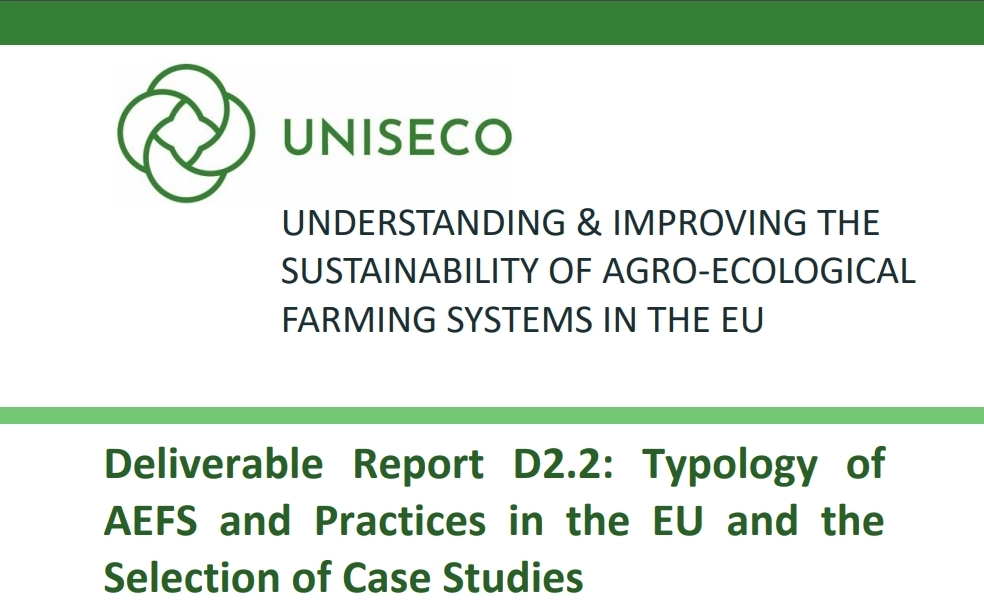The overarching objective of WP2 is to provide a conceptual framework for the project and to ensure a consistent theoretical underpinning of the practice and policy recommendations for agro-ecological transitions. In addition to the development of the conceptual framework for assessing the sustainability of farming systems (see Deliverable D2.1) further key tasks of WP2 were to design a typology of AEFS and the case study design and selection (Deliverable D2.2).
Deliverable report D2.2 proposes a three-dimensional typology (farm production systems (D1), AEF practices (D2) and socio-economic (SES) context (D3). This enables the differentiation between farming systems that have modified their management and practices away from convention-al farming systems, and recognises farming systems as part of a wider socio-economic, institutional and political context. The results emerging from the case study and territorial analyses will be used to further elaborate the proposed typology.
The process of case study selection was based upon 19 characteristics used to describe the candidate case studies (e.g. production type of farms, sustainability issue, agro-ecological practices, link to value chain, network presence, level of cooperation, presence of innovative policy and/or market incentives). The characteristics were selected to meet the methodological needs and project objectives. Statistics of candidate case studies was carried out and guidelines for partners drafted to ensure a good balance of case studies across the EU. National stakeholders discussed the suitability of candidate case studies for UNISECO and provided their preferences for the final selection based on their relevance to sustainable farming at a national level.
UNISECO has consulted with members of the EU-level Multi-Actor Platform (MAP) on the final case study selection and the proposed typology to ensure EU-level relevance of the selected case studies and AEFS typology.
We would like to thank the national and regional stakeholders in the partner countries for their valuable contributions to the discussion of candidate case studies. We would also like to thank members of the EU-level MAP for their useful comments and suggestions in the consultation of the candidate case studies and draft typology.
Download:
D2.2 - Typology of AEFS and Practices in the EU and the Selection of Case Studies
